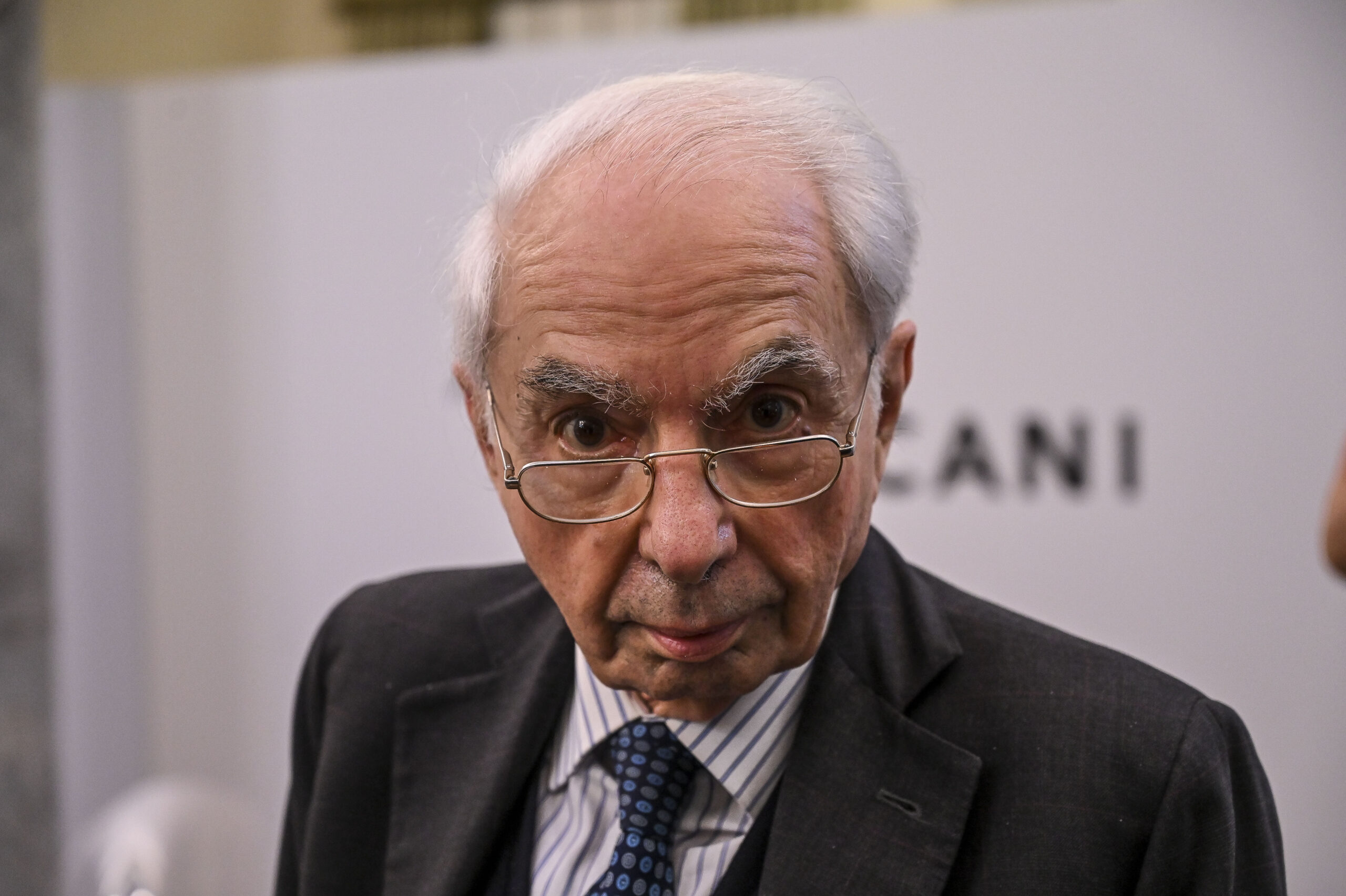Because Amato is not much loved in the center-right

Debate and reactions of experts and jurists on the government's constitutional reform. Including Giuliano Amato's comment… Battista Falconi's italics
We were able to measure Giuliano Amato's caliber twice in a few days. The first after Giorgia Meloni's public outburst against Alberto Barachini, the Undersecretary for Publishing who had unexpectedly and even ridiculously appointed the eighty-five-year-old Amato as head of a commission on artificial intelligence without notifying the Prime Minister. At that point the "ex tutto", only the presidency of his bowling club is missing from Giuliano Amato's CV, could have honorably tendered his resignation, which instead he only timidly hypothesized, taking on a position for which it is difficult to understand what competence he can have.
WHAT AMATO SAID ABOUT THE GOVERNMENT'S CONSTITUTIONAL REFORM
He gave the second demonstration of his arrogance by giving a critical interview to Repubblica against the hypothesis of institutional and constitutional reform put forward by the Government, which, to be euphemistic, reveals a certain lack of opportunity and recognition. Inappropriateness and ingratitude which are even more striking because, on the same day, the newspapers feature an interview with Francesco Talò , the head of the diplomatic office of Palazzo Chigi who declared himself guilty of the mess, annoying even if not so sensational, of the fake phone call with the African president into which Meloni fell. Talò allowed himself to be publicly crucified, fully assuming his responsibility: as a "carabiniere", as he himself underlines.
On the merits, Amato's criticisms of the reform are associated with those of Marcello Pera, who are striking because he is a former center-right president of the Senate, and other experts. We read that almost only the constitutionalist Francesco Saverio Marini supports the government bill. More striking than the opposition of some experts, however, on this issue is the perplexity among others expressed, with the usual clarity, by Luca Ricolfi; the idea that, after all, legal engineers and architects are having fun debating a topic that will never reach a goal, as has happened in the past. However, Meloni is also right in saying that this is the "mother of all reforms": if the automatism she established between the lack of government stability and poor growth of the national economy is perhaps excessive, the minister of Casellati's expertise when, very simply, he explains that a government without certainty of lasting at least five years has its weapons blunt in any improvement proposal it intends to be current.
THE ADVANTAGE OF MELONS
Furthermore, compared to his predecessors, Meloni enjoys the advantage not only of a fairly large and cohesive majority, whatever anyone says, but also of a popular consensus that is going well beyond the usual duration of the so-called "honeymoon". So he could be able to proceed along the rather complex path that passes through parliamentary debate, ordinary laws, referendums, evaluations by the Council, etc. One can only wonder what happened to the discussion between constitutionalists that was organized some time ago at the CNEL to bring together the different positions on the topic and reduce the time and cumbersomeness of the subsequent steps.
An attempt at sharing which will now continue in Parliament and which should lead to the realization of a reform which, as Meloni highlights, is not only an ideological intention and a programmatic commitment of the executive, but a profound need of the reality expressed by the citizens, the which indicate the authority of the head of state, the certain duration of the elected government and the maintenance of the commitments undertaken by the latter in the electoral campaign as fundamental points of a just, balanced and yet also efficient political regime and responsive to the extremely dynamic times that we are living. The government, on its own, is showing a certain availability for dialogue – the limit of which for Meloni is always avoiding meline, see minimum wage – and the "minimal" version of the project presented, which relies heavily on the existing Constitution to reduce the risk of tears and traumas, even at the cost of losing something in coherence and effectiveness.
Naturally, everyone knows that the only way to bring to the extreme consequences the needs that the reform seeks to respond to would be to abolish the legislative power, but no one can say this explicitly, otherwise the already widespread accusations of good partism would take on even more scandalous. Furthermore, taking definitive and fully aware note of the antiquity of current parliamentarianism would entail the admission of other anachronisms to be corrected. For example, that of a judicial system that prolongs the process to arrive at a final conviction or acquittal in such a long time that it sometimes exceeds the physical life of the people involved, thus leaving guilty people unpunished or innocent people suspended under suspicion, so much so that now criminal and civil proceedings are confused with the cold cases that fascinate the media. The impracticability of the social security and pension system would also need to be explicitly established, with respect to the increase in average age and longevity and, therefore, to the increasingly unfavorable relationship between taxpayers and beneficiaries.
Something strange but always complained about as if it were a defect of the system and not its substance, which should be combined with the other obvious consideration relating to the public health system, as we have been lucky enough to know it for a few decades, which no longer has the possibility of supporting oneself for the same demographic and age reasons. An older population is evidently a sicker population given that, in the words of Marcello Marchesi, life is a deadly and incurable disease.
This is a machine translation from Italian language of a post published on Start Magazine at the URL https://www.startmag.it/mondo/giuliano-amato-centrodestra/ on Sat, 04 Nov 2023 07:19:41 +0000.
